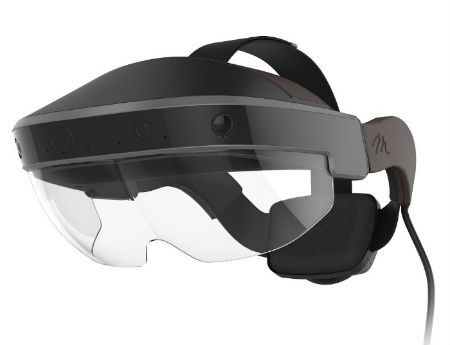Comcast Ventures Backs Augmented Reality Startup
The smarter way to stay on top of the multichannel video marketplace. Sign up below.
You are now subscribed
Your newsletter sign-up was successful

Comcast Ventures is part of a group that participated in a $50 million Series B round in Meta, an augmented reality tech startup founded in 2012.
Meta, which has raised about $73 million so far, said Horizons Ventures Limited, Lenovo, Tencent, Banyan Capital, and GQY also contributed to the B round.
Comcast Ventures’ financial interest in AR follows recent investments in tech and content startups focused on virtual reality (VR), including Spaces, Baobab Studios, NextVR and AltSpaceVR.
“AR has been around for decades but only recently have the requisite technologies become ‘good enough’ to allow a new generation of entrepreneurs to give it a go,” Michael Yang, managing director at Comcast Ventures, noted in thisblog postabout the investment in Meta. “Useful for collaboration and for communication, Meta’s AR products can change the future of work for employees in industries such as architecture, engineering, healthcare, and education, amongst others.”
The startup is now focused on Meta 2, a platform it unveiled at TED 2016 in February. The development kit for Meta 2 is slated to ship in Q3 2016. The kit, which runs $949, includes the Meta 2 AR headset, software development kit, four speaker near-ear audio systems, and a 720p front-facing camera.
Meta said it will use the new round to build on its hardware and software tech base and for business expansion, including app development. Notably, it will be entering a market segement also being targeted by Microsoft and its AR-focused HoloLens platform.
“It is incredibly gratifying to have the support of big thinkers and investors who understand the importance of creating a new human-computer interface, anchored in science, Meta CEO Meron Gribetz said in a statement. “Our friends at Tencent, Lenovo, Horizons Ventures, Comcast Ventures and all the other investors really get what we’re doing and why Meta is different from the other players in AR. They understand that the combination of our advanced optical engines along with our neuroscience-based interface design approach are what will create a computing experience that is 100x easier to use and more powerful than traditional form factors.”
The smarter way to stay on top of the multichannel video marketplace. Sign up below.
